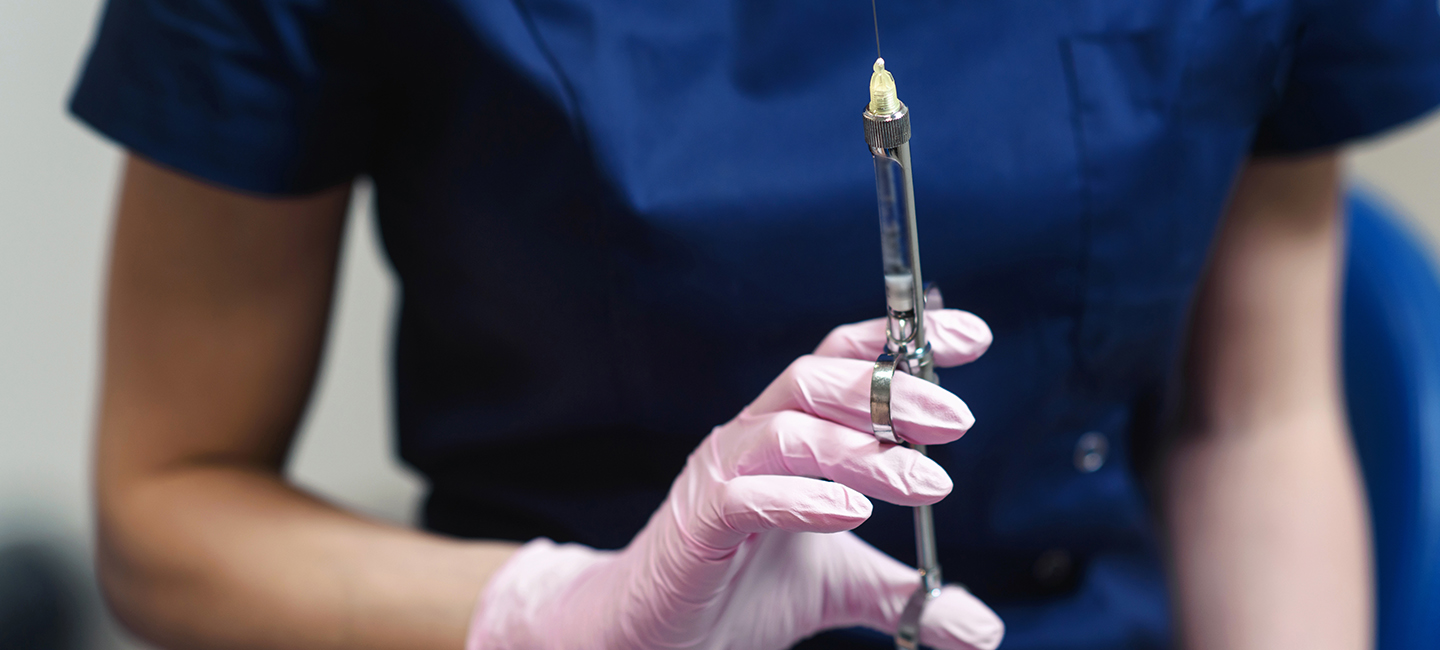A New Treatment Option May Replace Trips to Infusion
Soon, HER2 breast cancer patients will have an alternative to returning to the doctor’s office every three weeks for treatment. The U.S. Food and Drug Administration (FDA) approved Phesgo™—a combination of pertuzumab, trastuzumab and hyaluronidase—for injection under the skin to treat adult patients with HER2-positive breast cancer that has spread to other parts of the body. It can also be used for treatment of adult patients with early HER2-positive breast cancer.
Phesgo is initially used in combination with chemotherapy at an infusion center but could continue to be administered in a patient's home every three weeks by a qualified healthcare professional once chemotherapy is complete, according to the FDA. This at-home subcutaneous treatment is a five to eight minute injection into the thigh.
“Timing is everything,” said medical oncologist Dr. Heather Han, who works in Moffitt Cancer Center’s Breast Oncology Program. “With COVID, this option comes at the right time and may benefit patients who are interested in limiting their time at the cancer center. It will be up to the individual patient as to how maintenance would continue.”
According to Han, Moffitt pharmacists are already working on obtaining supplies of the new drug, which Han says she plans to offer to most patients.

"Most patients with HER2-positive breast cancer receive trastuzumab and pertuzumab at our infusion center,” Han said. “This offers an outpatient option for patients to receive the same maintenance treatment and could be a faster and easier experience."
While an at-home injection may be a more convenient option for patients, Han stressed that side effects could continue, similar to infusion. Studies also haven’t discussed the discomfort of the treatment.
“This treatment requires that a needle is placed under the skin for five to eight minutes,” Han said. “Some patients might find this uncomfortable or painful but the convenience may outweigh that discomfort.”
Since the injection has not yet been administered at Moffitt, Han hasn’t heard any firsthand experiences from patients receiving the therapy. It is something she’s interested in learning more about, however.
During the European Society for Medical Oncology Breast Cancer Meeting in May, investigators of the phase 2 PHranceSCa study reported that more than 80%" of patients preferred subcutaneous injection to intravenous (IV) administration of pertuzumab and trastuzumab.



